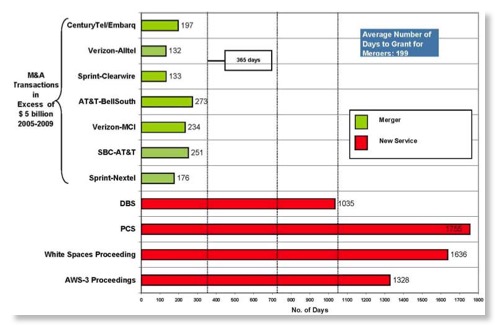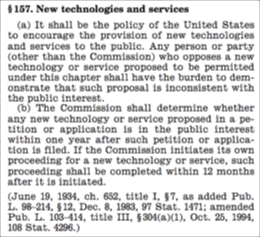What I Would Have Said to Pres. Obama at his Silicon Valley Dinner Last Night
18 02, 11 12:25 Filed in: FCC Reform

Last night, President Obama had dinner in Silicon Valley with several local CEOs and VCs as shown above. Fresh from his Saturday Night Live appearance Mark Zuckerberg was one of the guests.
Oddly, I wasn’t invited even though I was just in the area last week. We do not know what was discussed other than the official statement statement dealing with “proposals to invest in research and development and expand incentives for companies to grow and hire, along with his goal of doubling exports over five years to support millions of American jobs.”
But if I was a Silicon Valley CEO or VC here is what I would have politely told the President. Capital formation for R&D in innovative wireless technologies that need nonroutine approvals, e.g. rulemaking action, is being inhibited by the FCC’s long term inability to resolve such questions on a predictable schedule or a schedule that move anything like “Internet speed”. John Muleta, former chief of FCC/WTB spoke at my Virginia Tech class recently and used the following chart comparing new technology approvals with corporate merger (“M&A”) approvals. Both are complex and difficult.

While new technology approvals theoretically are governed by Section 7 of the Communications Act, shown at right, for almost 30 years now the Commissio

This week the White House proposed The Wireless Innovation (WIN) Fund to provide $1.0 billion to NSF over the next five year for research on experimental wireless technology testbeds, more flexible and efficient use of the radio spectrum, and cyber-physical systems such as wireless sensor networks for smart buildings, roads, and bridges as well as $15.0 million in FY2012 for Enhancing Access to the Radio Spectrum (EARS) that will support research into new and innovative ways to use the radio spectrum more efficiently. The papers I read indicate that generally the federal government is not looking for new spending opportunities and any such spending would be more effective if there were similar private investment - the very thing that is inhibited by FCC’s poor track record in resolving new wireless technology issues.
blog comments powered by Disqus



![Validate my RSS feed [Valid RSS]](valid-rss-rogers.png)

